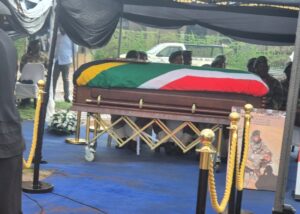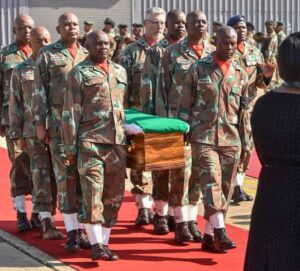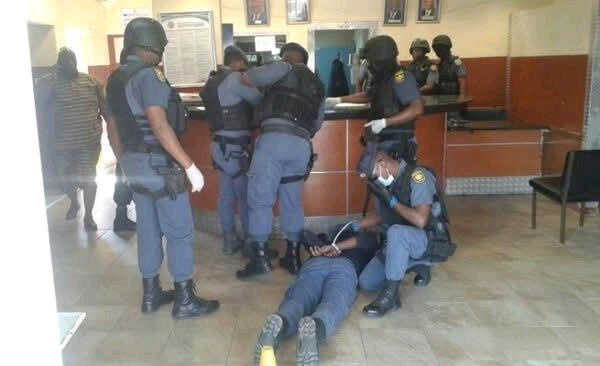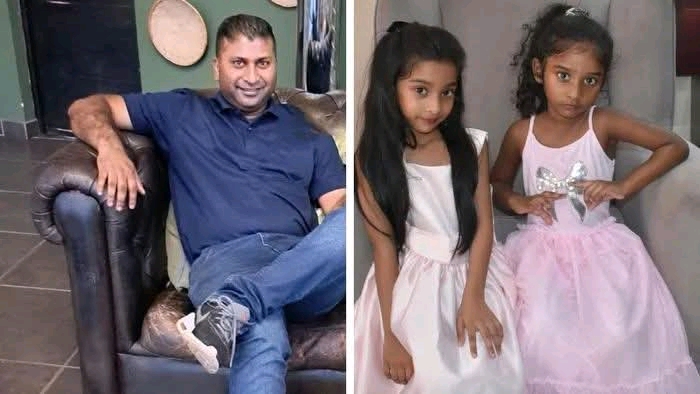
Calls for Government Assistance
Families of South African National Defence Force (SANDF) soldiers who died in the Democratic Republic of the Congo (DRC) are calling on the government for support in bringing home the spirits of their loved ones. The 14 soldiers were killed in a confrontation with the M23 rebel group, and their remains were handed over to their families at Air Force Base Swartkop in Tshwane on Thursday, 13 February.
The Congress of Traditional Leaders of South Africa (Contralesa) and the Funeral Industry Reformed Association (FIRA) have urged the government to help facilitate traditional rituals for the deceased soldiers’ families. These rituals, they argue, are necessary to ensure the soldiers’ spirits return home before burial.
Cultural Concerns Raised
Contralesa President Chief Lameck Mokoena expressed disappointment that families were not given the opportunity to conduct these important rituals. He raised this concern at the funeral of Rifleman Derrick Maluleke (36), who was laid to rest at his homestead in Nhlanike Village, Limpopo, on Sunday, 16 February.
“Our culture dictates that if someone dies in a tragic or unnatural way, certain rituals must be performed to bring their spirit home before burial,” Mokoena said. “We call on the government to assist families who wish to conduct these rituals so that their loved ones’ spirits can rest in peace.”
FIRA Chairman Johan Rousseau also criticized the government for failing to address the cultural needs of the bereaved families. He pointed out that delays in the repatriation process, including potential decomposition, have deprived families of the chance to properly honor their deceased relatives.
“It’s important to acknowledge that customs for natural and unnatural deaths differ,” Rousseau stated. He also noted that neither funeral industry representatives nor Contralesa were consulted regarding the funeral arrangements.
Lack of Support for Grieving Families
Rousseau questioned whether the government has provided adequate support to the families, including trauma counseling and assistance with burial arrangements. “I don’t know if they have done anything to accommodate the cultural and religious needs of these families,” he added.
He emphasized the importance of ensuring that families receive the necessary resources, such as tombstones and financial assistance, to ease their grief.
Government’s Response
SANDF Head of Communications, Simphiwe Dlamini, responded to the concerns, stating that no formal requests had been received from the soldiers’ families regarding spiritual repatriation.
“We have not had families approach us with formal requests for government assistance in this regard,” Dlamini said. “We respect cultural traditions, but given the ongoing conflict in the DRC, it would be difficult to facilitate such requests. We cannot risk taking families into a war zone.”
Dlamini acknowledged the significance of cultural practices but reiterated that the current security situation in the DRC complicates any potential arrangements.
Conclusion
As families continue to mourn their loved ones, the call for government intervention in honoring traditional customs grows louder. With cultural and emotional factors at play, stakeholders urge authorities to find a way to respect traditions while ensuring safety in the process. Whether the government will take steps to address these concerns remains uncertain, but for many families, bringing home the spirits of their fallen heroes is an essential part of the healing process.




